How Organic Makeup Is Empowering Women to Embrace Their True Beauty
flareAI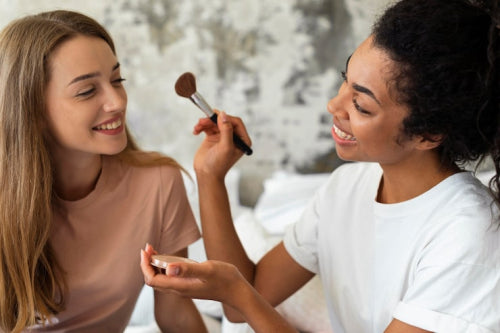
Quick Listen:
In an era where the beauty industry faces unprecedented scrutiny, the cosmetics counter has transformed from a mere repository of fleeting trends into a profound arena of personal conviction. Women today refuse to settle for superficial allure; they seek formulations that echo their ethical stances, nurture their complexions, and honor their distinct identities. At the forefront of this transformation stands organic makeup a dynamic force reshaping perceptions of attractiveness by instilling women with the agency to celebrate their unfiltered essence. Far beyond mere enhancement, this evolution fosters a profound, unwavering self-assurance rooted in authenticity.
Many women feel trapped by makeup that hides flaws but risks irritation and hidden toxins. This daily choice weighs heavily, dimming confidence over time. Liht Organics invites you to embrace beauty differently. With up to 90% USDA-certified organic ingredients, our vegan, cruelty-free products deliver vibrant color and gentle care, letting you glow with confidence, knowing your skin is nurtured, not compromised. Shop Now!
A Cultural Shift Toward Clean Beauty
The ascent of clean beauty represents nothing short of a seismic cultural upheaval, with empirical data illuminating its unstoppable momentum. Consider the trajectory of the global natural and organic cosmetics sector, which commanded a valuation of USD 41.65 billion in 2024 and stands poised to expand dramatically to USD 103.23 billion by 2034. This remarkable escalation, propelled by a compound annual growth rate of 9.50% spanning 2025 to 2034, underscores a burgeoning consumer enlightenment toward safe, environmentally conscious, and enduring beauty solutions. In North America, this fervor manifested in a substantial USD 19.16 billion market capture during 2024 alone, reflecting a collective pivot away from synthetic perils toward holistic wellness.
Parallel indicators reinforce this narrative. The broader natural cosmetics landscape registered USD 31.84 billion in 2023, with forecasts charting a course to USD 45.60 billion by 2030 at a steady 5.3% CAGR from 2024 onward. Key drivers include escalating expenditures on health-centric cosmetics and heightened vigilance against chemical-laden formulations that imperil dermal integrity. North America's 27.0% slice of the global pie in 2023 highlights the U.S. as a vanguard, buoyed by Gen-Z's voracious appetite and the burgeoning influence of the LGBTQ+ demographic. Notably, color cosmetics asserted dominance with a 30.1% share that year, while supermarkets and hypermarkets steered 38.1% of distributions, signaling mainstream permeation.
Yet the clean beauty vanguard surges even more vigorously. Valued at USD 8.25 billion in 2023, this niche is slated to quadruple to USD 21.29 billion by 2030, harnessing a formidable 14.8% CAGR from 2024. This vigor stems from mounting apprehensions over cosmetic safety, ecological footprints, and insidious ingredients lurking in personal care regimens. North America's 35.08% revenue stake in 2023, coupled with the U.S. market's anticipated 14.5% CAGR through 2030, cements its leadership. Clean skincare, mirroring organic makeup's ethos, clinched 41.70% of revenues, with women fueling 83.63% of demand via specialty stores that captured 35.67% of sales channels.
At the heart of this renaissance lies a discerning female constituency, awakening to the sovereignty of informed selections. They interrogate the hidden toxins in legacy cosmetics, gravitating toward offerings that harmonize with imperatives of vitality, ecological stewardship, and genuineness. This isn't a superficial substitution of botanicals for synthetics; it's an insurrection against antiquated ideals that exalt flawlessness at the expense of idiosyncrasy. Trailblazers like Liht Organics epitomize this ethos, curating makeup lines that amplify innate attributes sans obfuscation, thereby liberating women to author their own beauty manifestos. As these trends coalesce, they herald a democratized beauty paradigm where empowerment supplants emulation.
Empowerment Through Organic Makeup
Envision a morning ritual that exalts your inherent radiance rather than conceals it an ode to self rather than subterfuge. Such is the transformative allure of organic makeup, captivating women globally with its liberating pledge. Liht Organics exemplifies this paradigm, etching its legacy through an unwavering devotion to innocuous, dermatologist-endorsed components. From silken foundations that breathe with the skin to vivacious lip tints that whisper vitality, their arsenal is engineered to augment natural splendor while fortifying dermal resilience. Adopters frequently recount epiphanies of bolstered poise, transcending visual upgrades to embrace a holistic affirmation of agency. A testament: one devotee extolled how Liht's organic mascara elongated her lashes with crystalline precision, banishing the stinging betrayals of yesteryear's staples a quotidian triumph that ripples into broader self-regard.
This metamorphosis transcends the cosmetic veneer, delving into the psyche of expression. Organic formulations liberate women to curate personas that resonate with veracity, favoring palettes and consistencies that illuminate idiosyncrasies over homogenizing veneers. The interplay with adjacent realms amplifies this: clean skincare's 41.70% revenue stronghold in the 2023 clean beauty arena, predominantly woman-led at 83.63%, attests to a philosophical investment in self-reverence and planetary harmony. Here, procurement evolves into patronage of a worldview one where beauty's essence is symbiotic with sustenance and equity.
Delving deeper, organic makeup's empowerment manifests in its subtle subversion of normative pressures. Traditional regimens often impose a uniformity that stifles diversity, but organic alternatives sourced from regenerative agriculture and free of endocrine disruptors invite experimentation grounded in safety. This fosters not just external harmony but internal congruence, as users align their exteriors with their convictions. Liht Organic's curated selections, such as their mineral-infused blushes that adapt to diverse undertones, exemplify how such products can bridge cultural divides, making empowerment accessible across spectra of age, ethnicity, and lifestyle. In essence, these cosmetics become conduits for narrative, allowing women to script their stories unencumbered by compromise.
Navigating the Challenges of Organic Beauty
Admittedly, the pathway to unadulterated beauty is strewn with formidable obstacles, demanding astute navigation. Foremost among them is entrenched skepticism: myriad consumers harbor doubts that organic variants can rival the tenacity of conventional counterparts envision liners that smear under duress or bases that capitulate to midday perspiration. Compounding this is the fiscal barrier; premium pricing, born of meticulous sourcing and principled manufacturing, erects hurdles for the frugal. Yet, the global natural and organic personal care domain tallied at US$ 28.4 billion in 2025 charts a 9.7% CAGR ascent to US$ 54.3 billion by 2032, affirming resilience amid these headwinds. Nonetheless, elevated costs persist as a deterrent, underscoring the imperative for broadened accessibility.
Labeling labyrinths exacerbate the fray. "Natural" and "organic" monikers, though kindred in allure, diverge starkly: the former denotes nature-sprung origins sans assurances of cultivation rigor, per Persistence Market Research's elucidation. Lax oversight invites duplicity, ensnaring the unwary in veils of green pretense. Liht Organics counters with exemplary candor forthcoming dossiers of constituents and accreditations that fortify fidelity. Bridging organic integrity into ubiquitous commerce, sans dilution of caliber or equity, remains an acrobatic endeavor, yet one indispensable for universal enfranchisement.
Beyond economics and semantics, supply chain volatilities pose stealth threats. Climate vicissitudes imperil botanical yields, inflating costs and testing scalability. Regulatory mosaics across jurisdictions further complicate compliance, as certifications like USDA Organic demand rigorous audits that petite artisans may ill afford. Consumers, too, grapple with discernment: distinguishing genuine innovation from opportunistic mimicry requires vigilance. Herein lies the credibility crux brands must not merely proclaim virtues but substantiate them through third-party validations and lifecycle analyses. Liht Organics navigates these by forging alliances with sustainable harvesters, ensuring traceability from seed to swab, thereby modeling a blueprint for industry maturation.
The Business of Empowerment
The organic makeup efflorescence yields dividends far beyond consumer spheres, constituting a veritable trove for astute enterprises. Metrics are unequivocal: the organic skincare sphere, pegged at USD 47.71 billion in 2025, is forecasted to burgeon to USD 61.74 billion by 2030 via a 5.29% CAGR. Asia Pacific emerges as the vanguard, its expansive middle tier and ecological acuity catalyzing this vanguard. For entities like Liht Organics, this unfurls vistas for ingenuity from pioneering hybrid actives to infiltrating nascent territories.
True affluence resides in allegiance forged through ethos. Women electing organic makeup aren't transacting commodities; they're ratifying ideologies. Liht Organics harnesses this synergy, proffering artifacts attuned to verdant, salubrious ethos, engendering devotion that transmutes transients into devotees. Supermarket's 38.1% dominion in 2023's natural cosmetics dispersal, as per Grand View Research, betokens a niche-to-normative odyssey, recalibrating marquee auras. Empowerment and emolument entwine, birthing virtuous cycles where trust begets tenacity.
Strategically, this paradigm incentivizes vertical integration: brands controlling provenance mitigate risks while amplifying narratives of provenance. Marketing pivots from bombast to storytelling, leveraging user testimonials and impact metrics to cultivate communities. Fiscally, premium pricing sustains margins, but diversification into adjuncts like tools or education bolsters resilience. Liht Organic's playbook, blending e-commerce with experiential retail, exemplifies how empowerment metrics (e.g., repeat rates) eclipse volume, heralding a meritocracy where value trumps velocity.
A Future Rooted in Authenticity
Organic makeup's horizon gleams with promise, transcending fiscal forecasts to envision a tapestry of candor. Prognostications augur amplified exactitude from clientele, clamoring for unvarnished disclosures and embracive representations. The clean beauty surge to USD 21.29 billion by 2030, chronicled by Grand View Research, validates this tenacity, while organic skincare's march to USD 61.74 billion by 2030, via Mordor Intelligence, portends sectoral sustainability infusion.
Fundamentally, this domain endows women with arsenals for uncompromised self-celebration, harmonizing vitality and verity. Liht Organics forges ahead, attesting that allure can be bona fide, regenerative, and intimately resonant. Why defer self-embrace? Delve into Liht Organic's organic makeup compendium and unearth a regimen that venerates your totality exterior and interior alike. In this authentic dawn, beauty reclaims its mantle as empowerment incarnate.
Frequently Asked Questions
What is organic makeup and how does it differ from conventional cosmetics?
Organic makeup is formulated with natural, plant-based ingredients that are grown without synthetic pesticides, chemicals, or harmful additives. Unlike conventional cosmetics that may contain endocrine disruptors and synthetic compounds, organic makeup uses dermatologist-approved components that work harmoniously with your skin's natural processes. This allows women to enhance their natural beauty while maintaining skin health and avoiding potential irritation from harsh chemicals.
Is organic makeup as effective and long-lasting as traditional makeup?
Yes, modern organic makeup has evolved significantly to match the performance of conventional cosmetics. High-quality organic brands now offer formulations that provide excellent coverage, longevity, and color payoff without compromising on safety or skin health. While some consumers initially worry about durability, organic makeup like mineral-infused foundations and long-wearing lip tints can deliver all-day wear while actually nourishing the skin underneath.
Why is organic makeup more expensive than regular makeup?
Organic makeup typically costs more due to premium sourcing of certified organic ingredients, sustainable farming practices, and rigorous manufacturing standards required for organic certification. The process involves third-party validations, lifecycle analyses, and maintaining supply chain transparency from seed to product. While the initial investment is higher, many users find the long-term benefits to skin health and the alignment with their values justify the premium pricing.
Disclaimer: The above helpful resources content contains personal opinions and experiences. The information provided is for general knowledge and does not constitute professional advice.
You may also be interested in: Nerissa Low of Liht Organics: “Seeing Light at the End of the Tunnel;
Many women feel trapped by makeup that hides flaws but risks irritation and hidden toxins. This daily choice weighs heavily, dimming confidence over time. Liht Organics invites you to embrace beauty differently. With up to 90% USDA-certified organic ingredients, our vegan, cruelty-free products deliver vibrant color and gentle care, letting you glow with confidence, knowing your skin is nurtured, not compromised. Shop Now!
Powered by flareAI.co
Share
You May Also Like
-

Discovering Self-Love Through Clean Beauty: A Guide to Nurturing Your Inner and Outer Self
In the journey of self-love, every action, thought, and choice we make towards ourselves can be a powerful affirmatio...
-

The Science Behind Organic Makeup and Pregnancy: A Gentle Choice for Moms-to-Be
wp:paragraph Pregnancy is a wonderful and exciting journey that comes with added responsibilities of ensuring the ...
-
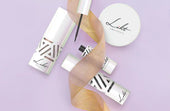
Liht Organics Black Friday: Enhance Your Beauty Routine with Vegan, Organic, and Natural Essentials!
As the holiday season approaches, there’s a sparkle in the air, and we at Liht Organics are thrilled to add a touch o...
-

Organic Makeup That Heals As It Conceals
Liht Organics Empowers Women With Only The Best For Their Beauty NeedsLiht Organics combines the best of both worlds:...
-
![[FEATURE] Liht Organics to debut at TFWA Asia Pacific show](//lihtorganics.com/cdn/shop/articles/1_1.png?v=1759328400&width=170)
[FEATURE] Liht Organics to debut at TFWA Asia Pacific show
‘Organic makeup that’s safe enough to eat’ — Liht Organics to debut at TFWA Asia Pacific show by Hannah Tan | 24 Apri...
-
![[FEATURE] The Singapore-based organic makeup brand is a first-time exhibitor at this year’s TFWA Asia Pacific Exhibition in Singapore in May 2025](//lihtorganics.com/cdn/shop/articles/2_1.png?v=1759328386&width=170)
[FEATURE] The Singapore-based organic makeup brand is a first-time exhibitor at this year’s TFWA Asia Pacific Exhibition in Singapore in May 2025
TFWA Asia Pacific preview: Liht Organics targets expansion in travel retail By DFNI Staff Writer The Singapore-bas...
-
![[FEATURE] Travel Retail Awards 2025 finalists - Best Make-up Product Color-Intense Liquid Lipstick – Liht Organics](//lihtorganics.com/cdn/shop/articles/4_e2f54f0f-fcd1-46e7-9990-fc9d29e35131.png?v=1759328382&width=170)
[FEATURE] Travel Retail Awards 2025 finalists - Best Make-up Product Color-Intense Liquid Lipstick – Liht Organics
Revealed: Travel Retail Awards 2025 finalists By Trbusiness Editor | Wednesday, 23 July 2025 15:21 TRBusiness is th...
-
![[FEATURE] Liht Organics targets expansion in travel retail](//lihtorganics.com/cdn/shop/articles/3_1.png?v=1759328346&width=170)
[FEATURE] Liht Organics targets expansion in travel retail
Organic makeup that’s safe enough to eat: Liht Organics targets expansion in travel retail By Laura Shirk Liht Organ...
-

[FEATURE] Gulf News: TikTok’s strawberry girl makeup trend: How to achieve that rosy glow inspired by Hailey Bieber
Berry, berry, strawberry, love strawberry, like BTS’s J-Hope, the band’s strawberry enthusiast once said. If only we ...
-

[FEATURE] Gulf Business Magazine : Liht-ing it up
Our founder, Nerissa Low was interviewed by Gulf Business, where she discussed her experience launching Liht, an orga...
-

[FEATURE] Daily Vanity: 11 local beauty brands owned by women – you’d be surprised how many of them started in their kitchens!
When we give a shout-out to homegrown beauty businesses, we aren’t just doing it for the sake of supporting local. Th...
-

[FEATURE] Entrepreneur ME : UAE-Based Liht Organics' Nerissa Low On Crafting An Organic Makeup Brand For The Skin-Conscious Consumer
As is the case with the origin stories of so many startups out there, Liht Organics came into being after its founder...
-
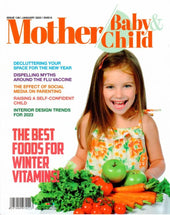
Mother, Baby & Child Editor’s Pick: Liht Organics Lights the Way
Excited to be the Mother, Baby & Child’s ‘Editors pick’ for their choice of Beauty brand.The article outlined the...
-
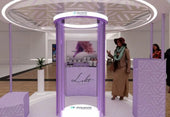
[FEATURE] EmiratesWoman - 8 Fabulous things to do in Dubai this weekend
by SARAH JOSEPHJANUARY 20, 2023Try the UAE’s first virtual reality makeup podium The popular VR-backed makeup exper...
-

Nerissa Low of Liht Organics On The Self-Care Routines & Practices Of Busy Entrepreneurs and Business Leaders
By Maria Angelova, CEO of Rebellious Intl.Date: 4 January, 2023Nerissa Low of Liht Organics On The Self-Care Routines...
-

Liht Organics: Meet the beauty brand that has caught the eye of the Royal Family of Bahrain
By Crystal Lee Digital Editor28 May 2021The world of clean beauty is, ironically, rather murky.That’s because the ter...
-

The latest luxury makeup and skincare drops, including serums, concealers, moisturisers and more
Allisa Noraini21 May, 2021It’s fine to splurge in the name of beauty. This new range of makeup and skincare drops are...
-

These SG Beauty Bosses Are Conquering The World Despite The Pandemic
First Singapore, then the US, China, Germany, Dubai, UK, South Korea, Malaysia, Hong Kong, Thailand, Australia… By...
-

Nerissa Low, Founder at Liht Organics
Written by Callum LaingPosted on December 26, 2020 10 min readNerissa Created Organic Makeup That Actually Improve...
-

Liht Organics – Makeup That Makes You
At Liht Organics, our mission is simple – to provide women (and men) with a safe experience when it comes to beauty s...
-

Why Should We Use Organic Makeup?
We cannot deny that cosmetics is one of our beauty essential item – it enhances our looks and conceals our flaws. Man...
-

Organic makeup and why your skin will love it: Liht Organics founder
By Jolene,July 27, 2020 |7 mins readOrganic make up in Singapore is a trend that is fast-catching on here as we becom...
-

[FEATURE] DC EDIT – Makeup & Confidence: Talking Self-love With Liht Organics’ Founder Nerissa Low
Makeup and confidence — the long, drawn-out fight that many of us have grappled with personally. I’m sure I’m not the...
-

[FEATURE] THE FEMALE CULTURE – I TRIED LIHT ORGANICS AND THIS IS HOW IT WENT
I’m a huge fan of makeup and I love testing out new products so I was pretty excited to get my hands on Liht Organics...
-

[FEATURE] SINGAPORE MOTHERHOOD – The Best Organic and Natural Skincare and Makeup for Pregnant and Breastfeeding Mums in Singapore
Pregnancy is a hormone-volatile period for women. One place where this makes itself seen and felt is on the skin. Som...
-

[FEATURE] AFTER CLINIC HOURS – 21 Back to Beauty Deals in Singapore (2020)
With spas and salons shuttered island wide for two months, I never thought I’d be this desperate for a good old’ Swed...
-

[FEATURE] KUL AL USRA MAGAZINE JUNE 2020
Choosing Pinks & Oranges this summer!Featured: Moisture Burst Lip Glaze in Pink Cupcake.
-
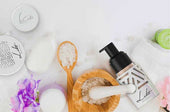
[FEATURE] Award-winning Organic Makeup Brand Liht Organics Gives Back to the Community & Environment During COVID-19
Singapore’s First Organic Makeup Brand with 100% Natural Makeup That Is Safe Enough to Eat Liht Organics promises org...
-

[FEATURE] COSMETICS DESIGN ASIA – COVID-19 ‘WAKE-UP CALL’: SINGAPORE’S LIHT ORGANICS SEES GLOBAL POTENTIAL AMID CLEAN BEAUTY CLAMOUR
Original article at: https://www.cosmeticsdesign-asia.com/Article/2020/06/26/Singapore-s-Liht-Organics-sees-globa...
-

[FEATURE] THE LIFESTYLE COLLECTIVE – BEAUTY SHOULD NEVER BE CRUEL
Date: June 24, 2020Author: Kristen Chen Liht (pronounced as light) Organics is a Singaporean organic makeup brand t...
-

[FEATURE] NÜYOU – 7 ONLINE PLATFORMS TO SHOP FOR CLEAN BEAUTY PRODUCTS
纯净美容(Clean Beauty)的美肤概念,再近几年来越来越受欢迎。随着消费者“爱自己”的美容意识逐步提升,对于用在脸上的所有物品、成分更为关注和讲究。以广义来讲,纯净美容主张使用“干净”成分和无毒配方,让肌肤的可能性损伤减到最小...
-

[FEATURE] COSMOPOLITAN MIDDLE EAST – 3 BENEFITS OF SWITCHING TO ORGANIC BEAUTY PRODUCTS THIS RAMADAN
By Cosmo – May 08, 2020Nerissa Low, founder of Liht Organics, shares the ultimate benefits of going organic this mont...
-

Nerissa Low of Liht Organics: “Seeing Light at the End of the Tunnel; 5 Reasons To Be Hopeful During this Corona Crisis”
Ely Weinschneider, Psy.D.May 8 · 9 min read …It shows us that everyone- whether we are rich or poor, regardless...
-

[FEATURE] AL MARA MAGAZINE APRIL 2020
-

[FEATURE] RetailME April 2020 – Liht Organics Stays Firm On Strengthening GCC Presence
-

[FEATURE] EMARAT AL YOUM NEWSPAPER – 27 MARCH 2020
English Translation:In spring and summer days, women love to have very light makeup in terms of color and texture, ...
-

[ARTICLE] WKND Magazine March 2020 – Know Your Organic Makeup
-

[FEATURE] AVIAMOST DUBAI – March/April 2020
English Translation:Lipstick with organic flowers. Thanks to the rich complex of natural ingredients, the lipstick...
-

[FEATURE] RUSSIAN EMIRATES (MAR/APR ISSUE)
Russian Emirates is a luxury lifestyle and fashion magazine covering information about the UAE, fashion, beauty, j...
-

[FEATURE] – KUL AL USRA MAGAZINE MARCH 2020
GET THE LOOK!
-

[FEATURE] IMAGES Retail ME – Liht Organics Announces GCC-Wide Expansion
Rupkatha Bhowmick Mar 10, 2020 The plan is to reach 75 Liht Organics retail touchpoints by June-July 2020 and touch...
-

[FEATURE] BABY & CHILD SPRING 2020 – NATURAL BEAUTIES
-

[FEATURE] AWQAT DUBAI – Liht Organics: The First Premium Organic Makeup Brand
ENGLISH TRANSLATION:Liht Organics – The First Premium Organic Makeup Brand Liht Organics, a premium organic beauty ...
-

[FEATURE] FRIDAY MAGAZINE – THE RETRO EYELINER LOOK
-

[FEATURE] MOTHER BABY & CHILD – VANITY ESSENTIALS – THE BEAUTY EDIT
-

[FEATURE] Masala! Magazine February/March 2020 Issue – Beauty Debut: Liht Organics
-

[Feature] – TimeOut Singapore – The Best Local Beauty and Skincare Brands In Singapore
For full article, click here.
-

[FEATURE] KUL AL USRA MAGAZINE – LIHT UP YOUR WORLD WITH LIHT ORGANICS
[ENGLISH TRANSLATION]Liht Up Your World With Liht OrganicsThe First Premium Organic Makeup Brand To Debut In The Mi...
-

[FEATURE] SINGAPORE TATLER – 9 Local Beauty Brands You Should Know Of
-

[FEATURE] nüyou August 2019 Issue – 15 Faces To Watch
-

[FEATURE] HONEYCOMBERS – Local Beauty Gurus: Singapore Beauty Brands You Need To Know About
-

[FEATURE] The Wellness Insider – Seeing The Liht With Founder Nerissa Low
-

[FEATURE] 联合早报 (LianHeZaoBao) – Women Entrepreneur Awards 2019 Coverage
-

[FEATURE] THE STRAITS TIMES Life – Clean beauty with a Singapore heart
-

Romantic Organic Makeup Looks for Valentine's Day: Tips, Tricks, and Product Picks
Valentine's Day is the perfect occasion to embrace the beauty of organic makeup. At Liht Organics, we believe in the ...
-
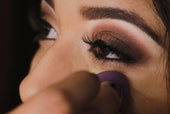
Enhance Your Eyes: A Guide to Eyeliner for Every Eye Shape with Liht Organics
Welcome to the Liht Organics blog, where we believe in celebrating the natural beauty of every eye shape. Today, we'r...
-
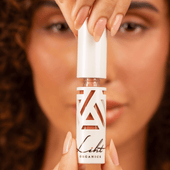
How to do makeup with only lipstick?
At Liht Organics, we believe in the power of clean beauty and the artistry of makeup. Makeup is more than just enhanc...
-

How to Clean Your Makeup Brushes in 6 Simple Steps
Cleaning your makeup brushes may seem like a tedious task, but it's an essential part of your beauty routine. Not onl...
-

Makeup Tips to Help You Look Your Most Flattering on Virtual Meetings!
After more than 2 years of work-from-home arrangement, and possibly hundreds of zoom calls and Google meet virtual me...
-
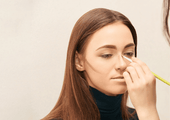
Learn How to Contour with This Simple Guide for Beginners
Want to take your makeup to the next level? Try contouring to achieve a more defined or sculpted look à la the Kardas...
-
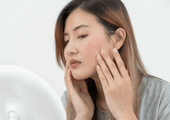
Essential and Easy Makeup Tips for Sensitive Skin
Living with sensitive skin conditions like eczema, psoriasis, and more is already not an easy feat. Throw in makeup t...
-

Raising Your Vibration: A Liht Organics Guide for Empowerment This International Women's Day
wp:paragraph As International Women's Day (IWD) approaches, it serves as a powerful reminder of the journey towards s...
-

The Beauty of Going Bare: Why Sleeping with Makeup is a No-No
Have you ever had one of those nights where you're too tired to clean off your makeup? You might believe, "Skipping...
-

Breast Cancer Awareness: Empower Your Beauty with Liht Organics Makeup
During October, we observe Breast Cancer Awareness Month as a way to unite and bring attention to breast cancer whil...
-

The Hidden Dangers of Carmine in Makeup Colorants: Embracing Healthier and Vegan Options
Makeup has become an integral part of our daily routines, allowing us to express our unique beauty. However, as we pr...
-

How can I ensure that my makeup products are organic and won't harm my skin?
When it comes to makeup, it’s important to be mindful of what you’re putting on your skin. With so many products on t...
-
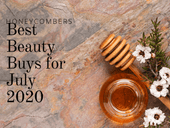
[FEATURE] HONEYCOMBERS – BEST BEAUTY BUYS IN JULY
by Nicole NithiyahWhat’s hot in our beauty hit list: Honest thoughts and top beauty stories we’re swooning over. As w...
-

Liht Organics Introduces Exclusive Gift Sets: Enhance Your Beauty This Festive Season!
As the holiday season approaches and the year draws to a close, Liht Organics is thrilled to present two enchanting g...
-

Get Spooktacular with the Best Halloween Makeup Ideas using Liht Organics' All-Natural, Vegan, and Cruelty-Free Cosmetics!
With Halloween just around the corner, it’s time to let your creativity shine and transform yourself into a spooky,...
-

Celebrating World Animal Day with Liht Organics: Embracing Natural Cruelty-Free Makeup
wp:paragraph As we observe World Animal Day, the team at Liht Organics takes great pride in honoring our pledge to...
-

Reasons Why You Should Choose Cruelty-Free Cosmetics Instead!
With increasing exposés unveiling the ugly truth behind animal testing that goes on in the beauty industry, it is lit...
-

Celebrate Singles Day with Makeup That Empowers – 22% Off at LIHT Organics!
This Singles Day, treat yourself to beauty that goes beyond skin-deep. At LIHT Organics, we believe makeup is about s...
-

Preparing for the Cozy Beauty of Autumn: A Preview of Your Fall Look
As we bid farewell to the warm, sun-kissed days of summer, it’s never too early to start dreaming about the enchantin...

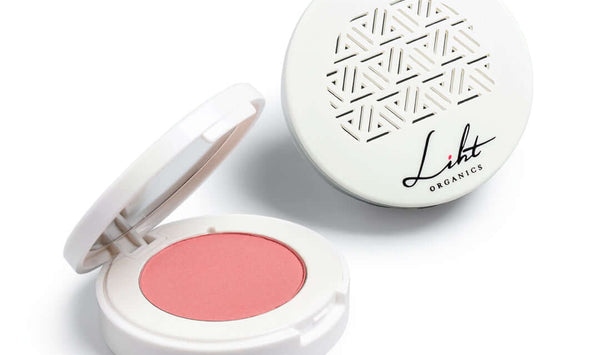
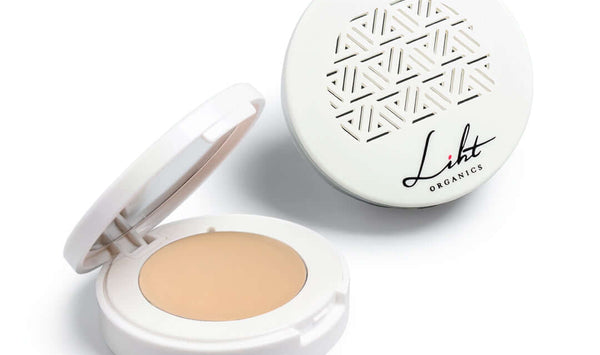
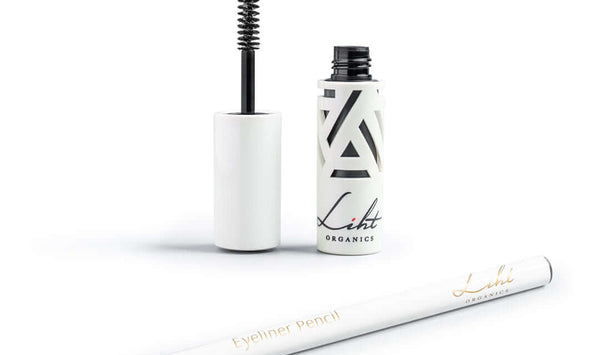
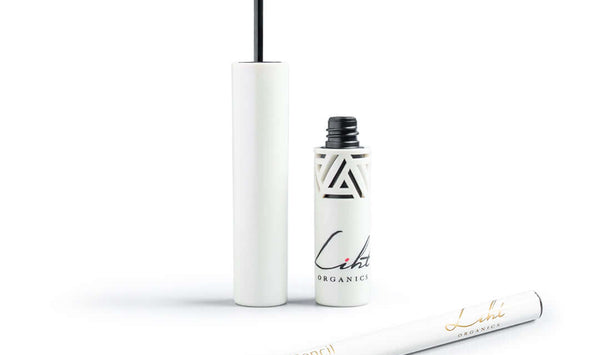
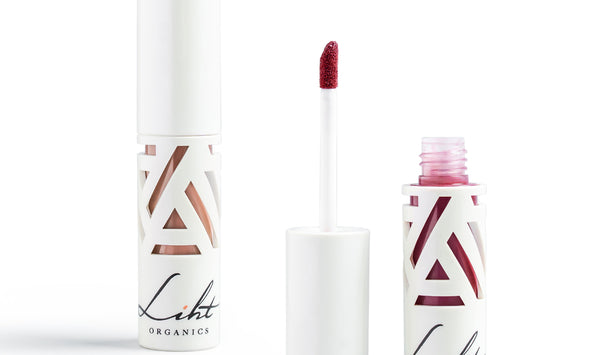
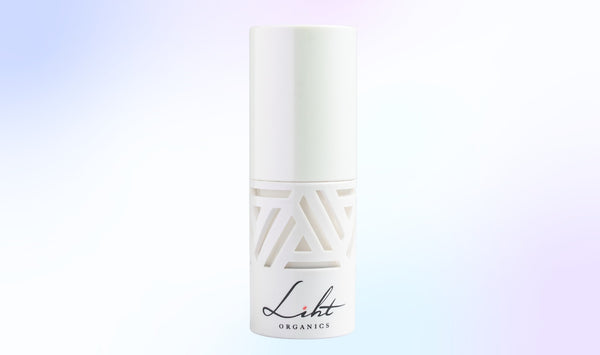

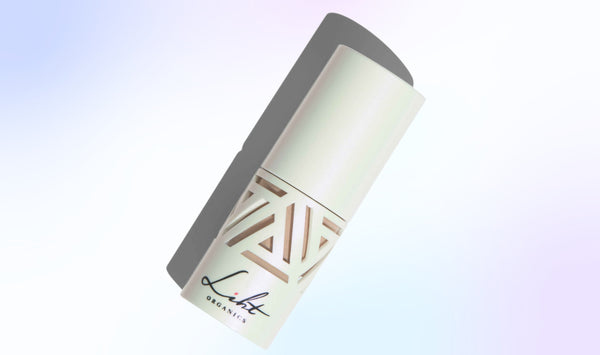
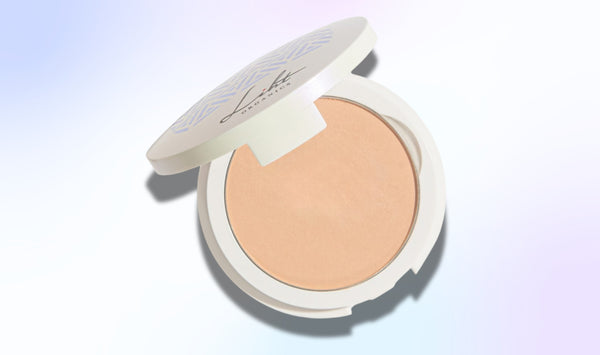
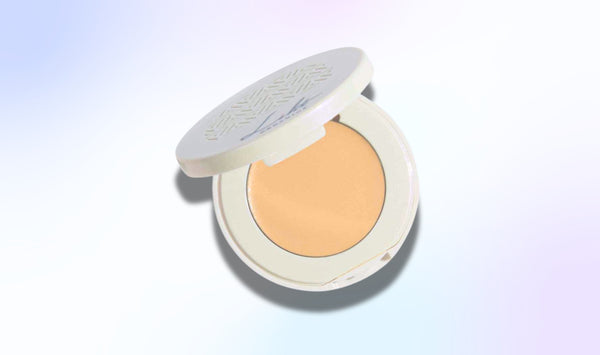
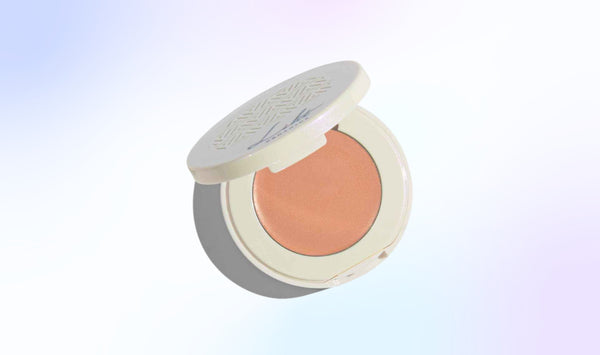
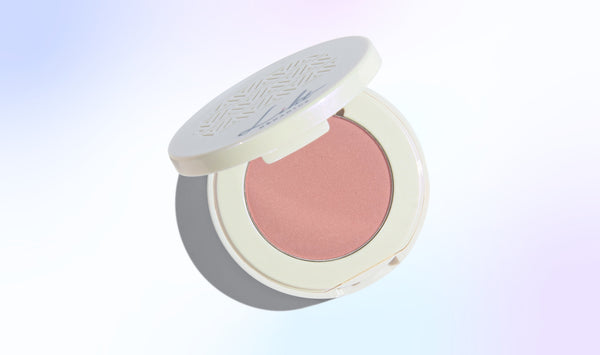
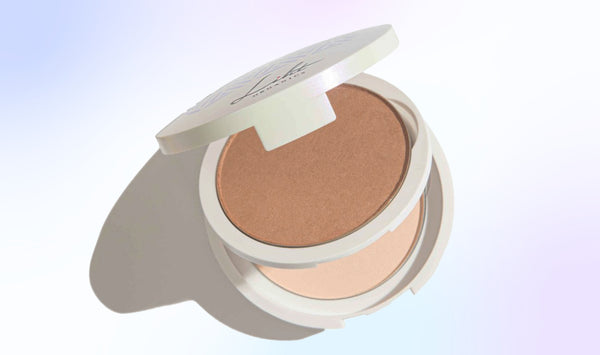
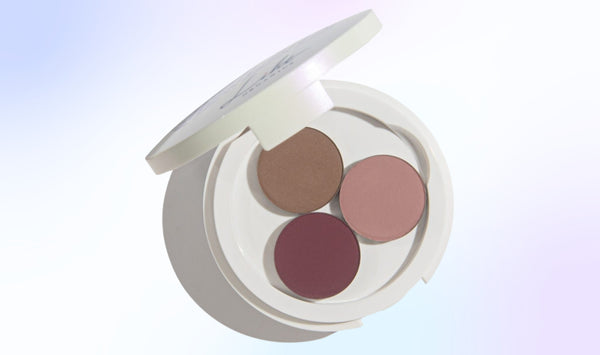
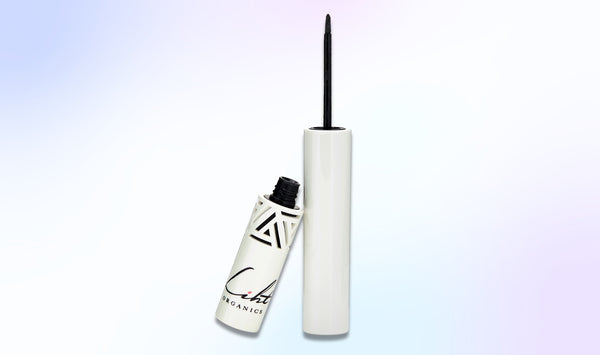
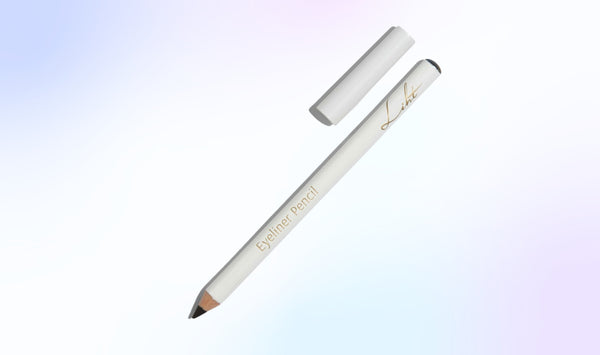
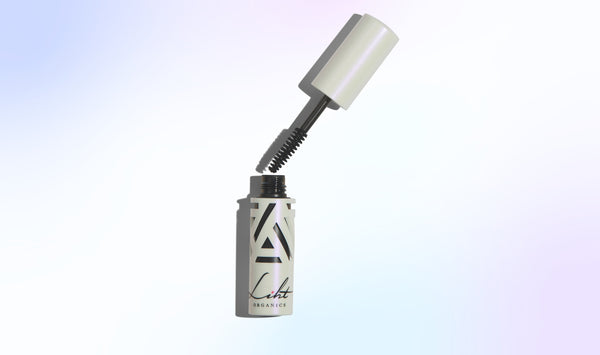
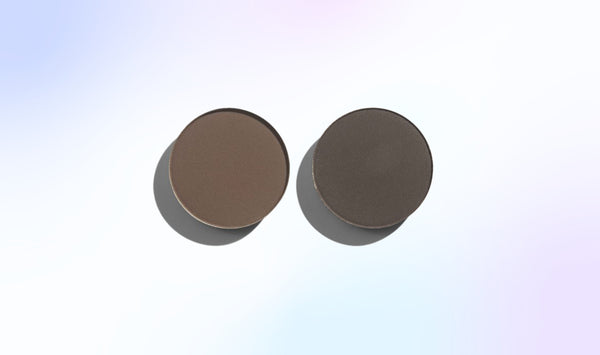
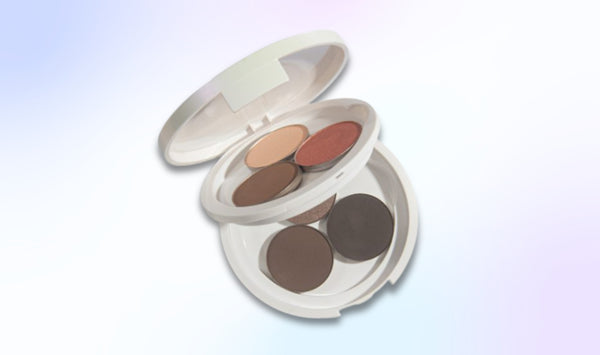
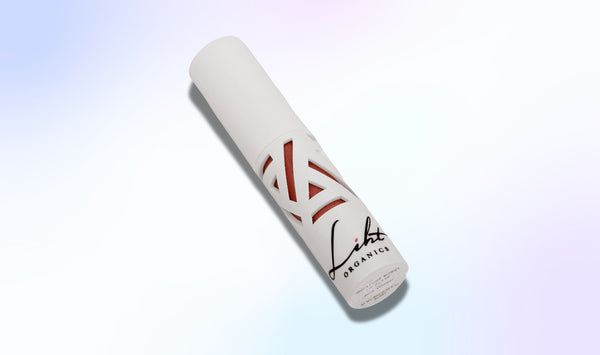
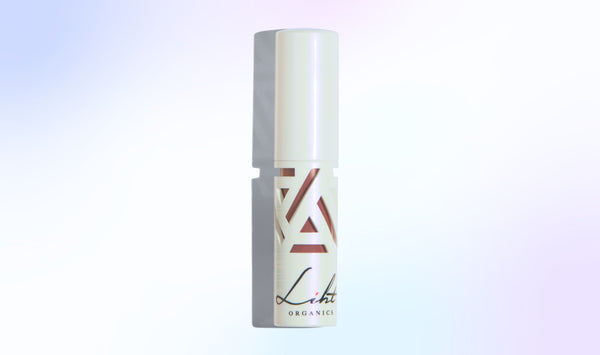
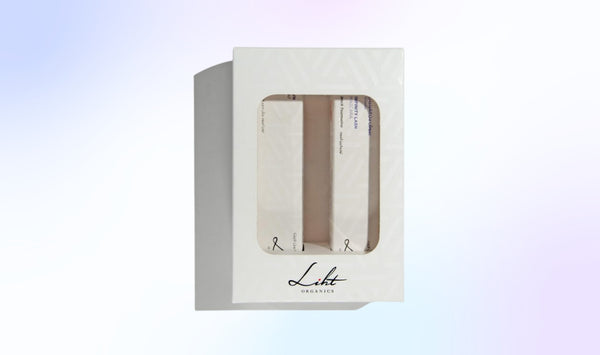
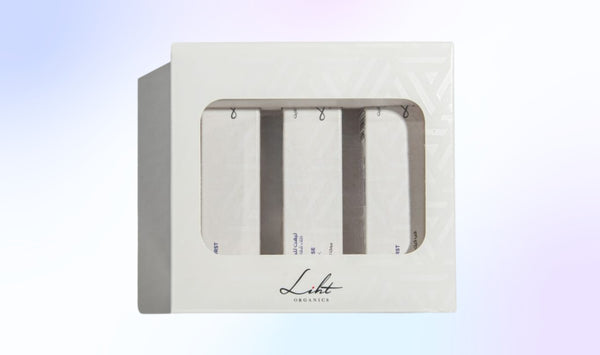


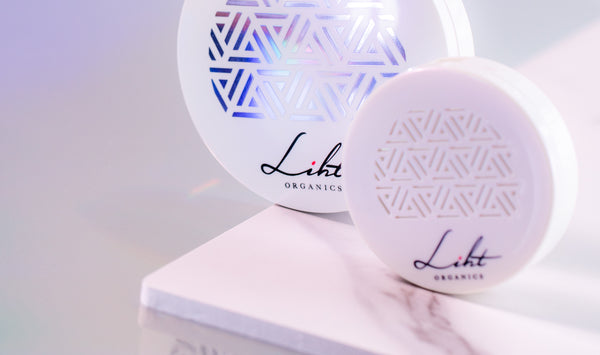
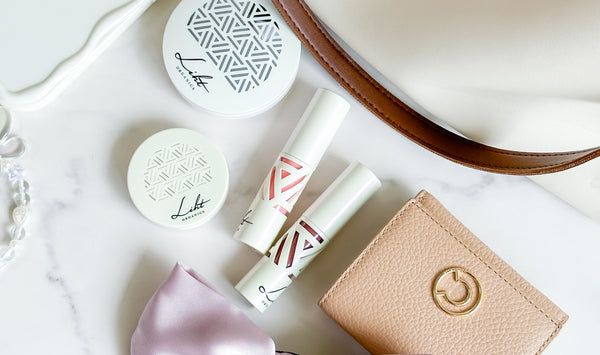
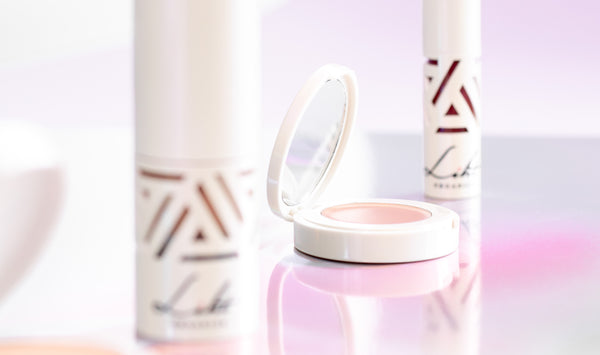




![[FEATURE] Liht Organics to debut at TFWA Asia Pacific show](http://lihtorganics.com/cdn/shop/articles/1_1.png?v=1759328400&width=170)
![[FEATURE] The Singapore-based organic makeup brand is a first-time exhibitor at this year’s TFWA Asia Pacific Exhibition in Singapore in May 2025](http://lihtorganics.com/cdn/shop/articles/2_1.png?v=1759328386&width=170)
![[FEATURE] Travel Retail Awards 2025 finalists - Best Make-up Product Color-Intense Liquid Lipstick – Liht Organics](http://lihtorganics.com/cdn/shop/articles/4_e2f54f0f-fcd1-46e7-9990-fc9d29e35131.png?v=1759328382&width=170)
![[FEATURE] Liht Organics targets expansion in travel retail](http://lihtorganics.com/cdn/shop/articles/3_1.png?v=1759328346&width=170)
































































